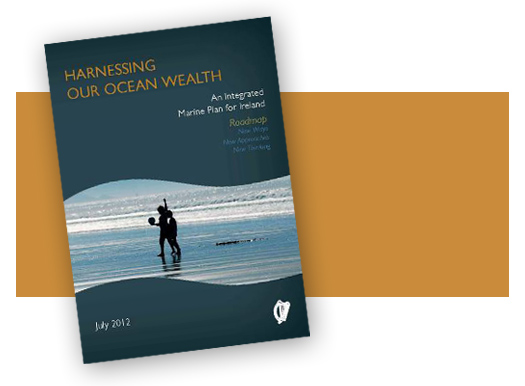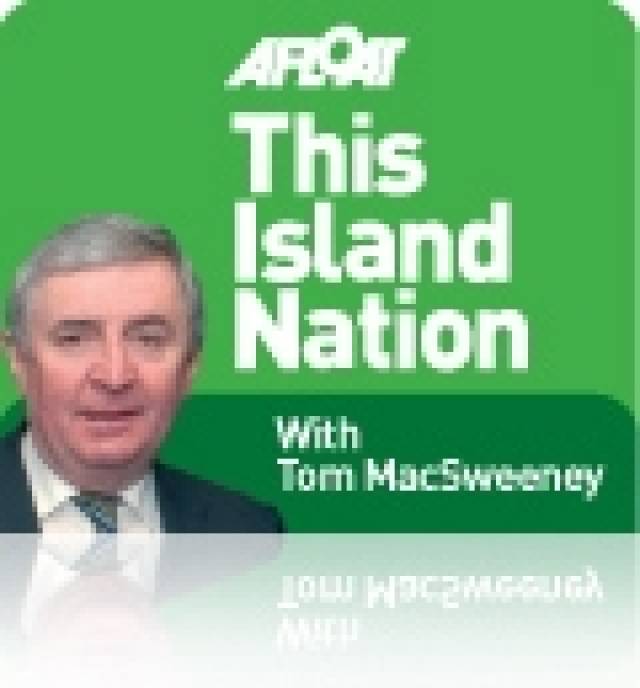Another attempt is being made by Coast Guard management in Dublin to close the coastal radio stations at Valentia and Malin Head and centralise operations in Dublin. That, the poor quality of television coverage of sailing at the Olympics, the future of the State's national fishing board and the launch of the national maritime plan, are amongst my topics on this week's THIS ISLAND NATION.
RESPECT FOR VALENTIA RADIO
Sailing the West Cork coastline last week Valentia Radio was a welcome companion. I listened to their regular sea area weather forecasts on VHF. They also provide the added service of message 'traffic' for vessels at sea, and advisory warnings about hazards, amongst their service. In addition to VHF Medium Frequency transmission covers a wider maritime area. The voices of the station staff become a familiar and welcome part of one's voyaging. You know they are there, a source of help and support if needed. During the week I heard them involved in search and rescue work, using their local knowledge.
On the North-Western coastline they are partnered by Malin Head Radio, providing a similar service. The staff of both have that vital component not available anywhere else, of local knowledge of their sea areas. The central base is in Dublin where staff can concentrate on the East Coast.
The service works well but high-level Coast Guard officials have been attempting for several years to centralise operations in Dublin and close Valentia and Malin. Previous attempts to do this were defeated when Coast Guard Management proposals were shown not to be in the best public interest.
I feel a sense of anger and annoyance that another attempt is being made to target the stations, emanating from the Department of Transport where a reliable source has given me details of a study on which Minister Leo Varadkar has told officials to prepare proposals which will propose what are termed 'hard decisions' before the Cabinet in October. It appears to me that Coast Guard management want one station, in Dublin, to control all output and, I am told, have repeatedly sought the adjustment of consultant reports to achieve this end. It could be done technically, but would exclude the vital aspect of local sea area knowledge which, in both Valentia and Malin has several times saved lives. It is an approach to safety which is not acceptable, with which there should be no compromise. When then Minister Noel Dempsey attempted to close the helicopter base at Waterford I raised the question – what is the value of one life? I do so again now.
NEW STATION EQUIPMENT
New equipment assigned to upgrade Valentia after the last controversy in 2009 is only due to be installed this month or next, a wait of three years!
New equipment is also being installed at present in Malin. One of the proposals by Coast Guard officials is that if a second station is needed to back-up and support the Dublin central base in case of any fault developing there and threatening a blacking-out coastal communications it should be in Blanchardstown, which just happens to be the Minister's constituency!
A new engine room, new boiler room, new security system, new generator, new operations room, an upgraded transmitter room and a helipad are due for installation in Valentia, so where is the justification for now considering closure – and at a time when other general Coast Guard stations, not radio stations, are and have been built around the country at considerable expense? Where is the logic in this?
THIRD LARGEST COASTAL STATION
Valentia is the third largest coastal marine station in Ireland and the UK. It covers the most turbulent seas in Western Europe and the roughest inland terrain in the country, where it also helps with search and rescue and deals with two-thirds of all 'Mayday' emergency calls around the coast of Ireland.
The station employs 16 people.
At present the Departmental-Coast Guard budget is putting money into a move away from the Eircom fixed line network to an independent contracted microwave network, configured to enable the coast to be covered effectively for marine radio, search and rescue, assistance information by three stations. If this was to be changed to any other configuration, if a one-centre option is chosen in Dublin, there would be an extra cost of around €10m. I have been told. Adding the €5m. already spent on the government decision to improve Valentia and Malin, I wonder what the point of all of this is? Why is Coast Guard management opposed to the costal-based marine radio stations, at the same time as building other Coast Guard bases around the coast. There seems a lack of logic in this approach.
WHAT IS THE VALUE OF A LIFE ?
In safety-at-sea terms the present maritime coastal radio station configuration of Valentia and Malin will always be required, as long-range Medium Frequency communications will stay there, used in addition to VHF to cover wider areas of reception. So even if a one-centre manned set up was followed, with an unmanned centre duplicate in case of Dublin breakdown, there would be two additional unmanned sites at Valentia and Malin to be maintained for long-range communications with attendant costs.
Dublin operates three 8-hour watches while Malin and Valentia have operated a 12-hour shift pattern with the effective saving of 2 staff positions without the requirement for overtime.
Coast Guard officials and the Minister for Transport should back away from proposals to do anything which would reduce the effectiveness of safety at sea.
They would be well advised to do so.
THE FUTURE OF BORD IASCAIGH MHARA
The Chief Executive of the national fisheries board, Bord Iascaigh Mhara, has told me that: "If you look at where the economy is at now, the need for a standalone agency dealing with seafood development makes sense more than at any time in our economic development. The case is stronger today than it has been for many a long time."
Jason Whooley was speaking to me about suggestions that BIM should be abolished and its functions absorbed elsewhere:
"I hope and would expect the review of BIM will come to the conclusion that it is vital to the seafood sector, to the fishing industry, to maintain BIM, but equally it is up to us as an organisation to constantly review ourselves and our services and deliver for the industry. People may see us as a State agency, cushioned from the wider economy and that an organisation needs a jolt. Perhaps that keeps us on our toes, because we are looking at ourselves constantly to improve our services, so I do think BIM has a strong future."
Closing BIM would, in my view, indicate disregard for the role of the marine sphere in government. The opinions of economic consultants are too easily accepted without challenging the damage they could do to the nation's future.
NATIONAL MARINE PLAN

"For too long we have turned our backs on the sea. It's time now to look to our ocean as a national asset, to harness the opportunities for economic recovery. We need to treasure what we have and protect it for future generations. We also need to build on the potential of our ocean wealth and what it can give back to its people. 'Harnessing Our Ocean Wealth,' the title of this plan, puts a structure in place to make that happen".
That was the opinion expressed by Marine Minister Simon Coveney when he launched the national maritime development plan with the Taoiseach in Galway. It proposes that the value of Ireland's ocean wealth could be doubled to 2.4% of GDP and the turnover from our ocean economy be increased to more than €6.4bn by 2020.
It is a long-term outlook, but one to focus on, for seafood, fishing, marine tourism, shipping, oil and gas, renewable ocean energy and new applications for health, medicine and technology. It sets out goals to achieve a thriving maritime economy, healthy ecosystems and to increase the nation's engagement with the sea, focussing on the State creating the right conditions to promote investment and enable growth.
POOR OLYMPIC COVERAGE
I have had quite a few calls and Emails complaining about television coverage of sailing at the Olympics. It has been poor. TV coverage for the Games is provided by t Olympic Broadcast Services (OBS), an agency of the International Olympic Committee and prevents other broadcasters from covering the events. In sailing coverage has not been satisfactory and at times is done on a single camera which is not acceptable at this level of the sport. The IOC has treated sailing badly in television coverage. For a link to all the latest Irish Olympic sailing news click here.
• Email comments, opinions, information to: [email protected]
Follow more marine news and comment on Twitter: @TomMacSweeney
• And on Facebook – THIS ISLAND NATION































































